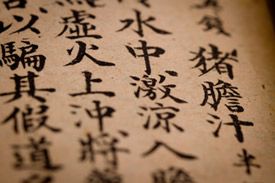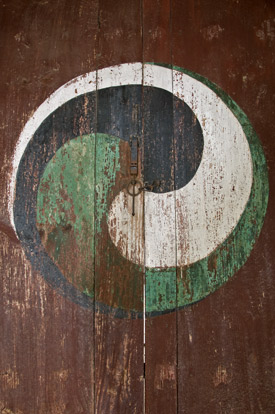 On previous pages you may have read some of the parallels to the Western perspective on how Traditional Chinese Medicine (TCM) can be interpreted. It is critical to understand that TCM is a complex, complete medical system that honestly, looks nothing like Western Medicine in diagnosis or treatment of disease.
On previous pages you may have read some of the parallels to the Western perspective on how Traditional Chinese Medicine (TCM) can be interpreted. It is critical to understand that TCM is a complex, complete medical system that honestly, looks nothing like Western Medicine in diagnosis or treatment of disease.
We use foreign words to our English ears, like Qi, Channels, yin and yang, excess and deficiency, and hot or cold to describe what’s happening within. If you’re not familiar with true Traditional Chinese Medicine (and I don’t mean a weekend seminar that shows you where points are located on the body alone), it can sound like gibberish.
 Fundamentally, TCM uses a completely different logic and rational than we’re accustomed to in the West. Deeply rooted in the scientific and innate laws and patterns of nature, those laws are applied to the human body and its functions. Just as an ecosystem is a perfectly orchestrated microcosm of interdependence, so too are each of us. Our physical form is constantly striving for balance (homeostasis) and therefore, health. But in the same way our outer landscape can become polluted and overburdened, so too can our physical form from factors like diet, negative emotions, stress, hormone imbalances and lethargy. Understanding the interplay of internal and external stressors are critical to our thinking for the diagnosis and treatment of disease. Hence why we are often labeled as “holistic medicine” which means attending to the entire person when creating a diagnosis and treatment. We look at the multitude of factors that impact the balance of our internal landscape, not just signs and symptoms.
Fundamentally, TCM uses a completely different logic and rational than we’re accustomed to in the West. Deeply rooted in the scientific and innate laws and patterns of nature, those laws are applied to the human body and its functions. Just as an ecosystem is a perfectly orchestrated microcosm of interdependence, so too are each of us. Our physical form is constantly striving for balance (homeostasis) and therefore, health. But in the same way our outer landscape can become polluted and overburdened, so too can our physical form from factors like diet, negative emotions, stress, hormone imbalances and lethargy. Understanding the interplay of internal and external stressors are critical to our thinking for the diagnosis and treatment of disease. Hence why we are often labeled as “holistic medicine” which means attending to the entire person when creating a diagnosis and treatment. We look at the multitude of factors that impact the balance of our internal landscape, not just signs and symptoms.
So, how can you help me?




Recent Comments